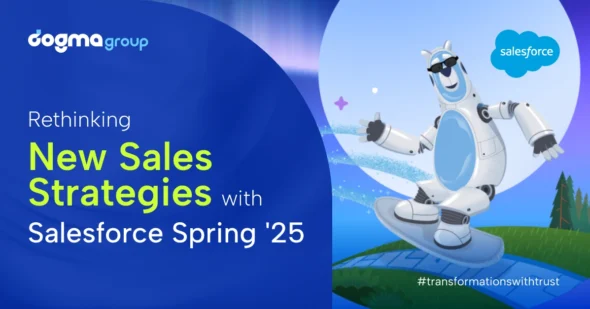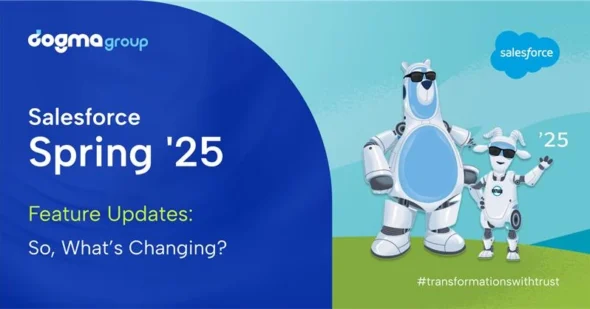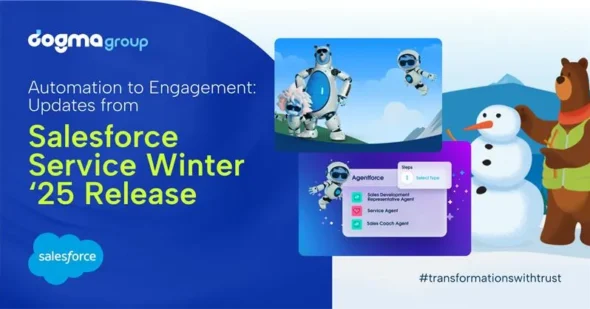Are you looking for opportunities to grow your sales?
Have you been working day and night to retain customers? Or are you trying to expand your business but don’t know how?
Don’t worry, you’re not alone in this never-ending quest for driving more sales, growing customer base and scaling up the business. And, for over a decade now the common tool that has been assisting business leaders in this quest happens to be Customer Relationship Management (CRM) technology.
CRM is a centralised platform for customer data and records that keeps track of client cases and interactions and also provides deep analytics and projections of marketing efforts and customer engagement in real-time. In simpler words, it’s a wholesale solution to all your pain points related to customers, sales and scalability.

To further shed the light on the significance of CRM systems for businesses today and their immense transformation capabilities, we bring you the excerpts from our conversation with Chris Lightely, CRM Functional Consultant at Dogma Group.
1. After spending all these years implementing CRMs successfully for so many clients, how would you sum up the significant impacts of CRM on businesses?
Prevalent needs across the industry are to have the ability to record things centrally, to communicate better with clients and collaborate across teams. And they all are interconnected.
Many companies currently collect their information in spreadsheets or similar solutions, which must be transferred between all team members on various devices. So, one of the significant impacts successful CRM implementations has on companies is that it removes silo data model where people are recording information on their computers or their email. The rest of the organisation can also benefit from team members’ knowledge of their contacts.
A centralised location for data records leads to better quality. We can gather more information about a contact as multiple people interact, record, and update those contacts from this single platform. Also, we can start collaborating with other team members who have their data in the system. For example, when you and your team members are working on a contact and capturing their information, if your other team member is simultaneously collecting other insights about the same contact, that is already a good collaboration.

This way, we can see what the other person is doing or gain contextual information when needed, which enhances the data quality and also improves customer experience. Additionally, the team members would understand more about the contact because everyone is working in a centralised system.
The ability to record centrally helps us get accurate insights, collaborate, and, thus, communicate effectively with the clients.
2. Are there any other ways that businesses can benefit from a CRM system?
Once we implement CRM, we can immediately get a better reporting capabilities on our clients because we begin gathering customer data as soon as we go live. In the long run, the data in the archive becomes a valuable resource. The insights from that data assist us in comprehending our customers’ long-term life cycles.
For example, we’ll know what they’re up to and how engaged they are with our brand. We can also utilise the data to create more opportunities for cross-selling and up-selling during the entirety of their customer life-cycle. That’s because we will already know their previous purchase history and predict their buying patterns which can be far helpful in the future.
Also, with this archive, any new hires or newly promoted professionals can readily access valuable information and promptly perform their tasks without any hiccups. In the past, if a salesperson left the company, they would take all the customers’ information with them. With Sales CRM, company data is secure and data recording and management are system-driven requiring less human intervention.

“In a nutshell, the benefits are about data. The longer we use the system, the more data we gather. And if we can start using the data effectively, we will be able to unlock new opportunities and understand our clients better and serve them more efficiently.”
We, as businesspeople, understand that there is an inherent value in the clients’ data. And, I think most companies are worried or overwhelmed, probably rightfully, so they are not using the data effectively enough. They are gathering data but not using it. What CRM gives us is better analytics and deeper insights into our clients. That is quite an important benefit from the long-term perspective.
3. CRM technology has been around for over a decade, but why do you reckon it has suddenly become more important than ever?
Having spent all these years successfully implementing CRMs for clients across multiple industries, I can tell you this—CRM is more than just customer-centric technology; it’s a complete business management system. It can do much more than just manage and communicate with our contacts. In fact, over the years, it has become an effective system that manages our business for us.
But the recent case of global COVID has made everyone, businesses and technology consultants alike, realise the real importance and utility of CRMs particularly, the ones that are cloud-based. Since the entire workforce has been dispersed and is working remotely due to the pandemic restrictions, cloud CRMs have been useful business platforms to continue running businesses.
These systems have proven to be a key piece of the puzzle that has allowed organisations to facilitate client communication, team collaboration, lead generation and conversion, and customer service over greater distances and limitations, which is unprecedented. All the physical customer interactions and experiences are facilitated digitally almost overnight. In a world devoid of CRM technology, all this would certainly not have been possible with just excel sheets and email attachments. So, that’s the first reason why CRMs have become more important than ever for businesses.
The other thing that most guidebooks would say is that these days customers have become quite sophisticated in how they want to be communicated. Gone are the good old days when communicating with customers meant creating an advert inside a magazine in a hope that your client sees it or sending out mass marketing emails to promote a product.
Today we can use tools like CRM to gather quite comprehensive insights and data about our clients that allows us to send them personalised and contextual messages and communicate with them in the way that they want to be communicated with.. And, it is definitely nothing like that old spray and pray method of marketing that we were so used to doing in the past. So, in addition to being a solid business management tool, CRM has also become a sophisticated marketing tool.
What’s more, the modern CRM tools offer a comprehensive marketing suite these days and we don’t even need to involve third parties. Our ability to gather the data and use it in marketing and communication campaigns has never been so critical. So, a key benefit of using CRM these days is improving that communication method.
4. What are some of the other reasons for businesses today to prioritise investing in CRM?
There are plenty of reasons for organisations to start investing in the latest CRM system. For starters, it allows businesses to retake ownership of their data. When employees are allowed to use localised spreadsheets and tools to record customer data in their devices, there is a high chance for businesses to lose all those data when those employees leave. So, having it in a central environment gives us control from a business perspective along with boarder visibility. And, from the employee perspective, it allows for more productivity, remote working capabilities, and unambiguous information.
The other reason why CRM has become the very essence of digital transformation projects, especially post-COVID, is that it makes all the data that are distributed on local and cloud-based servers readily accessible from anywhere in the world, which is quite essential these days.
And I would say that effective remote collaboration would not have been possible without a cloud-based CRM system. It has been a complete game-changer for us. Our ability to collaborate online is a significant benefit in the short-term.
The next reason why CRM is so important is that we understand that we can use all that centralised data to gain deeper insights into our contacts and clients, which, in turn, allows us to provide them more value. So, to start gathering the relevant customer data now, CRM is important.
The sooner we start collecting that data, the sooner we can use that data. We can get proper analytics and insights and apply machine learning to get accurate forecasting. So, we need data, and we need to start getting on that. We want it because we need to collaborate.
“In a world where we are not necessarily sitting in the same office anymore, collaborative CRM tools are essential for us to perform our jobs more efficiently and to foster relationships inside our organisations better than ever before.”

Here are some of the takeaways from the conversation:
1. Centralised data leads to better collaboration resulting in greater customer satisfaction: The ability to record data centrally helps businesses gain correct insights as every member relies on a single source of truth for data with a minimal chance of duplication and inconsistency.
Having a centralised platform also allows companies to check the data whenever they need to, leading to better collaboration. And when they are empowered with accurate and up-to-date insights, communicating with clients becomes much more enjoyable which, ultimately, results in higher customer satisfaction.
2. Better long-term analytics and insights: From a long-term perspective, one of the major impacts of CRM technology is that businesses can capture extensive data over an extended period of time, which allows them to have comprehensive business intelligence and accurate forecasting abilities. Additionally, it helps oraganisations build a system-driven business model that reduces human intervention in most business processes .
It also increases the opportunity to cross-sell and up-sell leveraging the comprehensive and detailed customer behaviour history generated by CRMs. That’s besides that fact that CRM gives us better customer analytics and broader insights into their behaviour.
3. Be informed and communicate effectively: CRM has fundamentally improved the way people communicate in a business setting. It has allowed everyone to stay updated regardless of the physical distance and also to respond to spontaneous customer queries.
4. Single source of truth: CRM has become a complete game-changer and necessary for all businesses as it provides data access and analytics capabilities, along with various communication and collaboration tools, and innovative resources from a single system.






